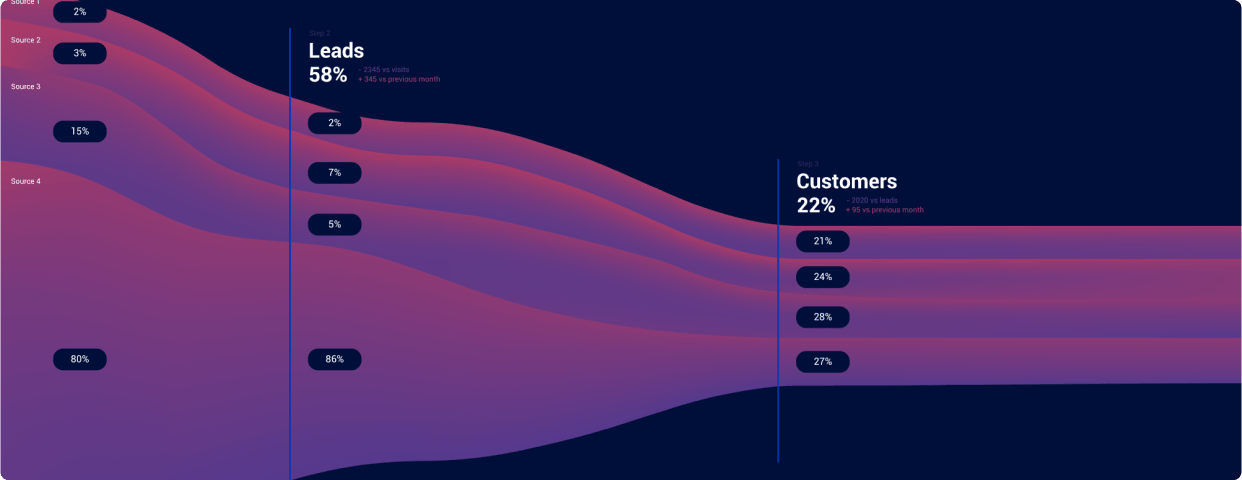Account-based marketing (ABM) is a targeted approach that aims to engage and connect with a specific set of accounts or target audience. ABM is a B2B marketing strategy that allows businesses to focus on building relationships with key accounts or customers, rather than casting a wide net to attract as many potential customers as possible. In the healthcare industry, ABM has emerged as a powerful tool to connect with healthcare providers and administrators.
Interested in hearing more about Account-based Marketing? We offer a 45min Lunch and Learn for marketing teams to hear all about best practices and current trends in Account-based Marketing. Schedule your session today.
At its core, ABM is a strategy that identifies and targets specific accounts or customers, with the aim of building relationships and driving engagement. ABM can be seen as a more personalized approach to B2B marketing, with a focus on delivering tailored content and messaging to individual accounts.
An example of a B2B ABM program could involve a software company that provides electronic health record (EHR) solutions to hospitals and healthcare providers. In this scenario, the software company would identify a set of target accounts, such as large hospitals or healthcare systems, and then develop a personalized marketing strategy for each account.
The software company may identify a hospital that is currently using a competing EHR solution. The marketing team would then create a customized campaign that speaks directly to the hospital’s specific pain points and challenges. This may include personalized email campaigns, targeted social media ads, and even customized landing pages that speak directly to the hospital’s needs.
An example of a B2B ABM program could involve a software company that provides electronic health record (EHR) solutions to hospitals and healthcare providers. In this scenario, the software company would identify a set of target accounts, such as large hospitals or healthcare systems, and then develop a personalized marketing strategy for each account.
The goal of this ABM program would be to build a relationship with the target account and ultimately convince them to switch to the software company’s EHR solution. By targeting specific accounts with a personalized approach, the software company can deliver a more effective marketing message and ultimately drive more conversions and sales.
In the healthcare industry, ABM can be an effective strategy for engaging with healthcare providers and administrators. Healthcare is a complex industry with many stakeholders, including hospitals, physicians, insurance providers, and government agencies. ABM allows healthcare marketers to target specific accounts and deliver personalized messaging that speaks directly to their needs and pain points.
One key advantage of ABM in healthcare is that it allows marketers to focus on building relationships with key decision-makers within healthcare organizations. For example, a pharmaceutical company may use ABM to target specific hospital systems and build relationships with pharmacy directors or clinical pharmacists. By building these relationships, the pharmaceutical company can better understand the hospital’s needs and develop solutions that address their specific pain points.
ABM can also be an effective strategy for engaging with healthcare providers. For example, a medical device company may use ABM to target specific physician practices and build relationships with key decision-makers such as practice managers or medical directors. By delivering personalized messaging that speaks directly to the needs of the practice, the medical device company can build trust and credibility with the practice and ultimately drive more sales.
Another key advantage of ABM in healthcare is that it allows marketers to deliver targeted messaging to specific segments of the healthcare industry. For example, a healthcare IT company may use ABM to target healthcare providers that specialize in oncology or cardiology. By delivering messaging that speaks directly to the needs of these providers, the healthcare IT company can build credibility and establish itself as a thought leader in these areas.
To effectively use ABM in healthcare, marketers should first identify their target accounts and understand their specific needs and pain points. This may involve conducting research and analyzing data to identify key decision-makers and areas of focus within the healthcare industry.
Once the target accounts have been identified, marketers should develop a personalized marketing strategy that speaks directly to the needs of each account. This may involve creating customized email campaigns, targeted social media ads, and personalized landing pages that speak directly to the needs of the account.
Another important aspect of ABM in healthcare is measurement and optimization. Marketers should continually monitor and analyze the effectiveness of their ABM campaigns, making adjustments and optimizations as needed to ensure strong ROI.
In conclusion, account-based marketing (ABM) is an effective strategy for engaging and connecting with healthcare providers and administrators. By identifying specific target accounts and delivering personalized messaging that speaks directly to their needs and pain points, healthcare marketers can build relationships and establish themselves as thought leaders in the industry.
ABM allows healthcare marketers to focus on building relationships with key decision-makers within healthcare organizations and deliver targeted messaging to specific segments of the healthcare industry. This personalized approach can help build trust and credibility with target accounts, ultimately driving more conversions and sales.
To effectively use ABM in healthcare, marketers should identify their target accounts, understand their specific needs and pain points, and develop a personalized marketing strategy that speaks directly to each account. Marketers should also continually monitor and analyze the effectiveness of their ABM campaigns, making adjustments and optimizations as needed to ensure maximum effectiveness.
Overall, ABM can be a powerful tool for healthcare marketers looking to connect with healthcare providers and administrators. By delivering personalized messaging and building relationships with key decision-makers, healthcare marketers can establish themselves as thought leaders in the industry and ultimately drive more conversions and sales.
Interested in hearing more about Account-based Marketing? Schedule a 45min Lunch and Learn for your marketing team today. We’ll share best practices and current trends that can help your team implement or optimize your Account-based Marketing initiatives.

